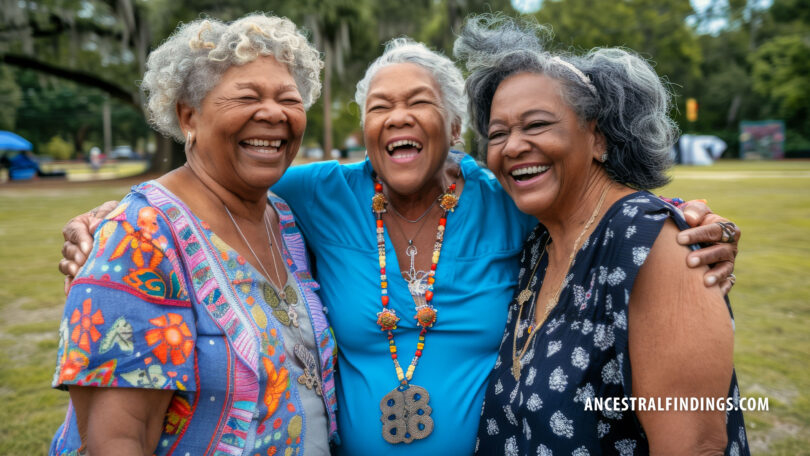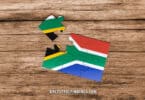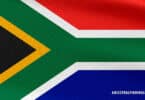Genealogical research in South Africa can be a rewarding experience, but it’s not without its challenges. Whether you’re trying to track down a birth certificate, find an ancestor in the 1800s, or interpret handwritten documents in an unfamiliar language, these obstacles can slow down your progress. However, overcoming many of these challenges with the right approach and tools is possible.
Let’s explore two key challenges genealogists researching South African ancestry face: language barriers and record loss. We’ll also explore practical strategies for overcoming these obstacles to help you piece together your family’s history.
The Language Barrier: A Multilingual Landscape
One of the most significant challenges when researching South African genealogy is the country’s linguistic diversity. South Africa is a multilingual nation, with 11 official languages today, but historically, it was shaped by several dominant languages, including Dutch, Afrikaans, and English, as well as various indigenous languages like Zulu and Xhosa. Depending on the period and region you are researching, you may encounter records in any of these languages.
1. Early Colonial Records (1600s-1800s): Dutch
Dutch was the official language during the Dutch East India Company’s control of the Cape Colony (1652-1795). Many of this period’s early church, legal, and government records are written in Dutch, making them difficult to interpret if you are unfamiliar with the language.
• Tip: Use online translation tools or enlist the help of a Dutch-speaking genealogist. Websites like Google Translate can help you with basic translations, though it’s always advisable to cross-check translations with a native speaker for accuracy.
2. The Shift to English (1800s onwards)
With the arrival of the British in the early 1800s, English became increasingly prominent, particularly in government and church records. However, it’s important to note that many documents continued to be recorded in Dutch or, later, in Afrikaans (a language that developed from Dutch) well into the 1900s.
• Tip: Look for bilingual documents. Some official records, particularly those from the early British colonial period, were recorded in Dutch/Afrikaans and English, making them easier to interpret.
3. Indigenous Languages (Zulu, Xhosa, etc.)
Indigenous South African languages, such as Zulu, Xhosa, and Sotho, were primarily spoken by the native population and often appear in oral histories and personal names. While official government and church records were usually in Dutch, Afrikaans, or English, personal names or tribal names might be in these indigenous languages.
• Tip: Understanding the meaning of personal or family names in these languages can provide significant insights into your family’s background. You may need to consult language experts or cultural organizations to understand these names fully.
4. Afrikaans Records (Late 1800s-1900s)
Afrikaans became an official language in 1925, but it was used in records even earlier, especially in areas like the Western Cape, where the Afrikaans-speaking population was predominant. Afrikaans records are common in church registers, civil documents, and legal records, particularly from the late 19th century onward.
• Tip: Since Afrikaans are closely related to Dutch, it may be easier to interpret if you have some understanding of Dutch. There are also Afrikaans-English dictionaries available that can help you translate key terms found in genealogical documents.
How to Overcome the Language Barrier
• Translation Tools: Free online tools like Google Translate can help with basic translations, but be cautious of errors. For genealogical documents, a service specializing in translating historical records or consulting a language expert is recommended for more accurate results.
• Bilingual Record Searches: Some official records, especially during transitions between Dutch, Afrikaans, and English, may have been recorded in multiple languages. Don’t assume a document only exists in one language—explore archives for both Dutch and English versions.
• Seek Help from Genealogical Communities: South Africa has a rich community of genealogists who are often willing to help with language barriers. Online forums and social media groups focused on South African genealogy can connect you with others who can help translate or interpret documents.
Record Loss: Historical Conflicts and Their Impact
Another major challenge in South African genealogy is the loss of records due to historical conflicts, natural disasters, or simply poor preservation practices. Understanding where and why records were lost can help you navigate these gaps and find alternative sources.
1. The Anglo-Boer Wars (1899-1902)
The two Anglo-Boer Wars profoundly impacted South Africa, both socially and politically, and on historical records. The conflicts destroyed many vital records, especially in areas like the Transvaal and Orange Free State.
• Tip: In cases where civil records were lost, try to focus on military records, estate documents, or personal letters. Military archives from the Anglo-Boer Wars can often provide information on family members who were involved in the conflicts.
2. Apartheid-Era Record Loss (1948-1994)
During apartheid, the government’s policies of racial segregation also affected record-keeping. Many records relating to non-white citizens were poorly kept or even destroyed. For example, many church records and community-based records from black, Indian, or colored populations were not preserved with the same care as those of white citizens.
• Tip: When facing apartheid-era gaps, consider looking into oral histories, private family records, or records held by community organizations. Churches and religious organizations often kept their own archives that may fill in the gaps left by government records.
3. Poor Preservation of Church and Civil Records
Church and civil records were not well-preserved in some rural or under-resourced areas. Physical deterioration, floods, fires, and improper storage have led to the loss of many important genealogical documents over time.
• Tip: When formal records are unavailable, newspapers, local histories, and family bibles often fill in missing details. Also, consider looking for alternative documentation, like land records, wills, or school registers, which might provide clues about your ancestors.
Overcoming Record Loss
When faced with missing records, it’s easy to feel stuck, but there are ways to work around these gaps:
• Alternative Records: While civil or church records might be missing, other documents like land deeds, wills, and newspaper announcements can offer insights into family connections.
• Oral Histories: In some communities, particularly indigenous and rural ones, oral histories are a valuable source of information. Seek out older family members who may remember family stories that can be pieced together into a larger picture.
• Search Provincial Archives: Sometimes, local provincial archives have records that may not be found nationally. Be sure to check the provincial archives of places like the Western Cape, Eastern Cape, or KwaZulu-Natal for localized records.
While genealogical research in South Africa presents challenges like language barriers and record loss, these obstacles are not insurmountable. You can overcome these difficulties creatively and persistently uncover your family’s rich history. By learning how to work with multilingual records and finding alternative sources when official records are missing, you can navigate the twists and turns of South African genealogy and bring your ancestors’ stories to life.







